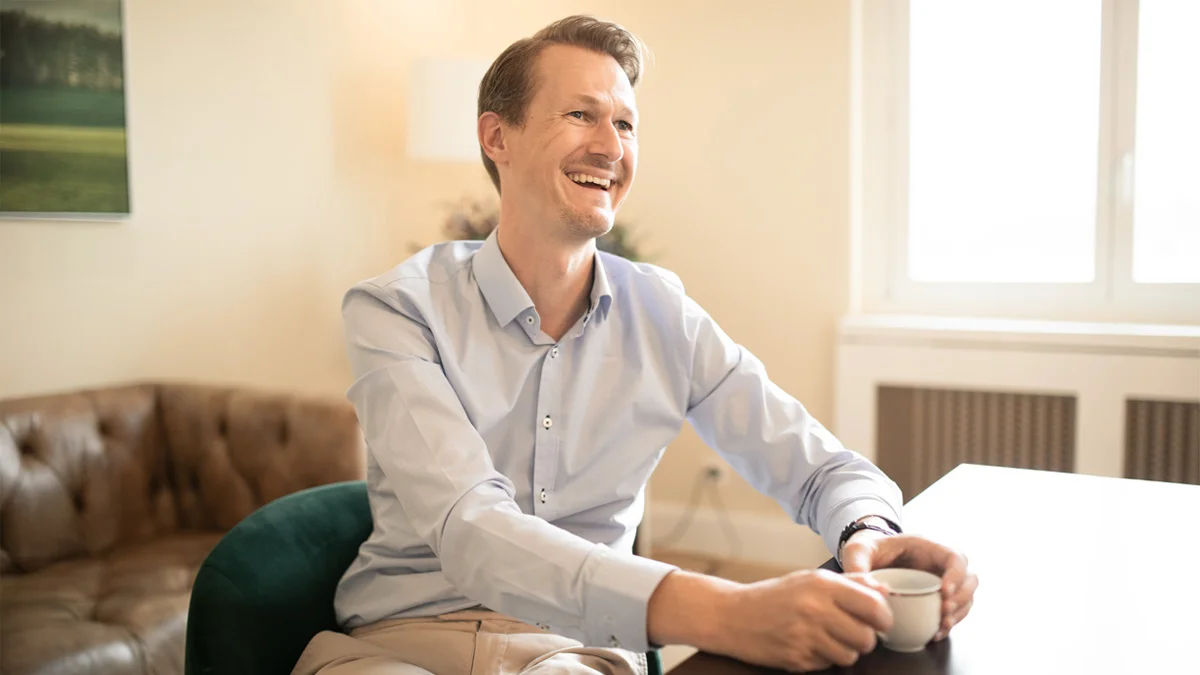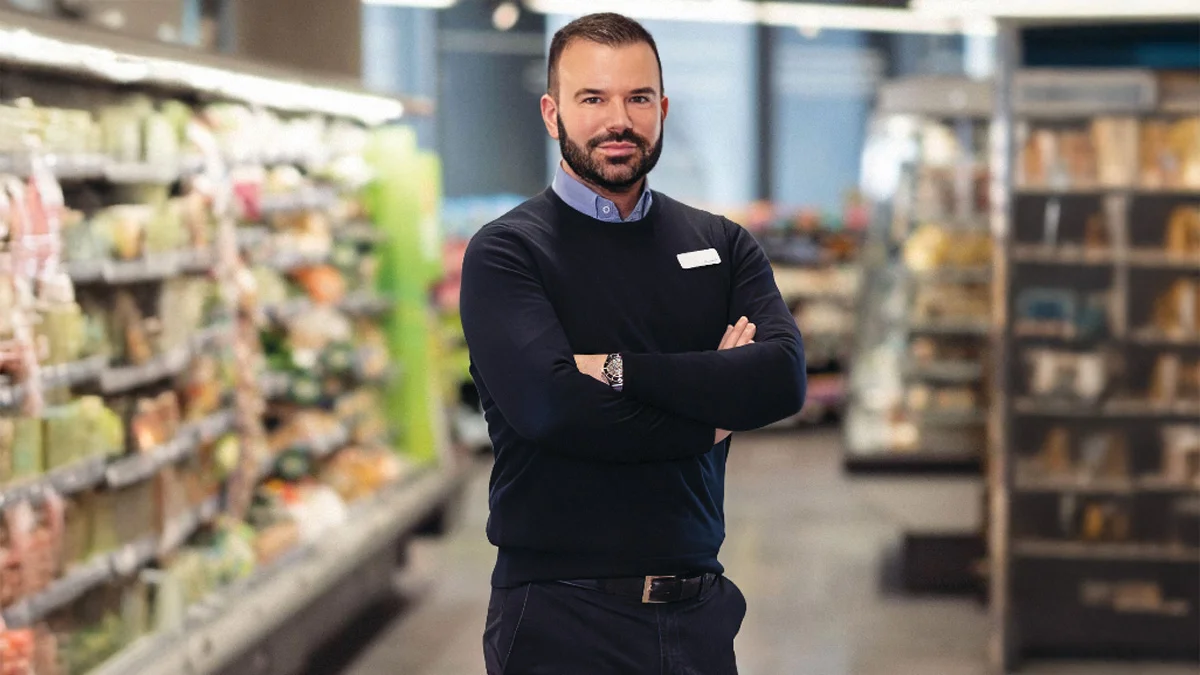
Leading businesses can be a stressful job. It may come with a sizeable pay packet, but that doesn’t protect chief executives and founders from developing mental health issues – and in some cases, it might cause them. For the very wealthiest, treating these issues might include a stint at the £85,000-a-week Paracelsus Recovery clinic in Zurich.
It’s an exclusive facility designed for those used to the finer things in life, promising round-the-clock care from dedicated therapists in a luxury residence with “five-star service”. The exclusive treatment begins as soon as you land in Switzerland. I was greeted at the plane’s door and whisked through a side exit to a car marked VIP on the runway.
From there, I was taken to a separate passport control zone complete with a VIP lounge and, of course, no queues. While waiting for my transport to Paracelsus Recovery, I was offered canapés and exotic drinks. It was at this point I fear I gave myself away – I kept stopping to photograph everything I was witnessing, from the BMW with VIP plates to the ornate food dishes.
The assistants seemed surprised that I was content to pull my own luggage, despite their repeated offers of assistance. A chauffeur drove me in a Bentley to the clinic. As we glided through the frozen streets of Zurich listening to the Swiss jazz station on the radio, I couldn’t help but think of jaded CEOs suffering mental burnout who had made this journey before me.
The Paracelsus Recovery clinic has been treating high-net-worth individuals in Zurich since 2013. It is named after the famous Swiss physician and alchemist who helped pioneer a medical revolution in the Renaissance.
Nowadays it is known for the single-client rehab technique. Patients are assigned therapists who live with them during their stay and are on-call 24/7. A team of 15 people, including psychiatrists, nurses, nutritionists and personal chefs is responsible for each client. The clinic owns three apartments on the lakefront in the city centre where patients are treated in isolation. Clients may stay for up to two months at a time.

I was lucky enough to stay in one of these penthouse apartments during my one-night visit. Clearly designed to calm those staying, it had a neutral colour palette and an abundance of flowers and candles. It also smelt like a spa, due to the perfumes pumped into the property. I was informed that my personal chef would visit the following morning and asked if I had a favourite dish. I opted for eggs benedict. Some patients will choose nostalgic dishes from their childhood, which are recreated with a healthy twist.
Next to my room (with a bathroom bigger than my bedroom in London) there was a second bedroom for the live-in therapist. Unlike the Betty Ford Center in California or the Priory in London, clients never mix at Paracelsus Recovery and there are no group therapy sessions. The reason that therapists live with the patient is that a client might be ready for a breakthrough conversation at any moment, after having a bad dream or stressful phone call, for example.
Scattered around the apartment I saw the signs of impromptu sessions: a flipboard with marker pens in a cupboard, notepads and plenty of long couches and cushions for restful contemplation. There were beautiful views of the lake and a rooftop terrace too, to soothe the mind. In the morning, I had an appointment with Jan Gerber, founder and chief executive. He is an entrepreneur rather than a trained therapist and the idea for the clinic came about by chance, he said.
Fifteen years ago, a family friend, who was a top executive, was struggling with alcohol addiction and asked Gerber’s parents for help. Gerber’s mother was a nurse specialising in mental health, while his stepfather was an addiction counsellor. They put the executive up in the family home, so he could be treated discreetly. (Gerber’s father is a psychiatrist and would later become the clinic’s medical director.)
This episode led Gerber to spot a business opportunity. Zurich has other specialist rehab clinics, such as the Kusnacht Practice, and is known as the home of pioneering psychotherapist Carl Jung, so it has an international reputation for this type of care. Gerber saw the chance to open a facility that would be a haven for wealthy clients, including CEOs, to recover from their personal traumas. Hundreds have since visited.
More than half the clients are senior business leaders, whether CEOs, founders or senior partners. Around a third are from the US, a third from the Middle East and a third from the UK. Perhaps surprisingly, very few come from elsewhere in Europe. Some clients check in themselves, but for others, an intervention is needed. This could come from the person’s family, or from the CEO’s company board or investors.
This is a sign that they value the person and want them to recover for the good of the company, as well as the individual. There is less stigma around mental health than a generation ago, says Gerber. “It’s become more OK for a CEO to step back and say, ‘I need to take care of my mental health for a moment,’” he adds. “Some CEOs still need to be treated in secrecy though and Switzerland is well known for its confidentiality.”

So, what are the signs that burnout is happening and what types of business people come? Some chief executives and leaders check in because stresses at work have led them to develop addictions such as alcohol or painkillers. Then it may come to a point where they recognise this is affecting their behaviour and mental state, with feelings of acute anxiety or bouts of depression. In general, women will seek help earlier than men: “Before hitting a wall,” says Gerber.
The canary in the coal mine is sleep, he explains. A change in the quality of sleep is often the first symptom to suggest that burnout is imminent. Even though it’s not ideal, sometimes the individual will continue to work while receiving treatment, taking calls or even travelling to a vital meeting. This could happen because the CEO doesn’t want people to know about the treatment, but in some cases, it is simply vital for the survival of the company, so compromises are made.
Shortly after arrival, patients will be taken to the medical room where initial medical tests that will guide treatment take place. The medical team uses measures such as ultrasounds of the heart or blood tests, which are used to produce a baseline report. In this room, they can also do blood draws (a phlebotomy) or oxygen therapy. Next door is a boardroom with a view of the lake that is used for meetings with clients, their families or perhaps a CEO’s trusted entourage who travel with the patient.
Gerber says there is a noticeable rise in referrals and inquiries on two occasions: economic downturns and before company results, when a CEO must face investors or shareholders. “Moments like these can throw them over the edge,” says Gerber. This is the point where many must face up to issues they may be trying to ignore. Many successful CEOs also have imposter syndrome, he adds. “They think to themselves, ‘I might be found out.’”
Imminent failure means the tide will go out and their inner fears are exposed. We all define ourselves by our jobs to a certain extent, says Gerber. “But for the CEOs of large companies, the public may know of them because of this aspect of their identity. They might even think it affects the way their families think of them.
“CEOs are still human beings,” adds Gerber. “They have the same quirks, fears and abandonment issues as anyone else, but being a successful CEO throws fuel onto the fire of normal life problems.” Certain personality types are more likely to end up at the clinic. “There’s a self-selection mechanism,” says Gerber. “We see many incidences of ADHD for instance, maybe five or tenfold [more than in society at large], and also around a five-fold higher representation of alcoholics.”
What is the reason for this? In his opinion, many of the personality traits that characterise these conditions also make people successful at building businesses. They both exhibit “a high-risk appetite and an ability to make on-the-spot decisions in high-stakes situations. They also display high levels of confidence and resistance to criticism and are out-of-the-box thinkers who can prove the people following the consensus wrong.”
They have the compulsive and obsessive personality needed to succeed, but this can also prove their undoing, especially when business finances are hard. This can then manifest itself as mental burnout when they succumb to the negative aspects of their compulsive behaviours.

According to Gerber, “prevention and awareness is key” when it comes to avoiding burnout. He wishes that more companies would make mental health part of their risk assessment frameworks, an issue to be regularly discussed by the board and senior management. Very few companies have this in place, he says. But a more open culture around mental health means this should be discussed, for the benefit of the business and the people working in it.
That is one aspect of how Paracelsus Recovery runs its business that others can learn from. Yes, in the end, it is an elite clinic for the super wealthy, but it puts a lot of time and effort into making sure every person who visits feels they are cared for and looked after.
During my one-night stay, I realised I’d forgotten something: my toothbrush. Hunting through the cabinets in my bathroom, I realised they were full of all the provisions people staying could possibly need, from nail clippers to footcare products. The toothbrush I opened and used was by a brand I had never heard of but was the best toothbrush I have ever used.
This moment made me realise part of the power of this place. You come to feel like every detail of your life has been taken care of by someone who has put a lot of thought into the smallest of things. Because these details are being run with Swiss precision, and you are here on your own, you can focus on the bigger issues affecting your life and try to resolve them.
There’s a lesson for all businesses here. Make life easy for your employees, provide them with the tools and support they need, and they will pay that back in dividends. That doesn’t mean having to provide every employee with a personal chef and 24/7 support. But it does mean putting as much thought into what they need as into the job you need them to do.
Related and recommended
Contestants from The Apprentice reveal the fundamental business lessons they learned from taking part in the TV show
From global talent pools to AI-powered documentation, a work-from-anywhere model is a new way of thinking about productivity, innovation and teamwork
The story of how cycling brought Business Leader member John Readman together with his co-founder and investors
Stuart Machin’s hands-on leadership has revived M&S, tripling its share price and reshaping its future, by obsessing over the details, from shop floors to staff message boards





